Disclosure: This article contains affiliate links. We may earn a commission from purchases at no extra cost to you, which helps our travel content.
As someone who's photographed in over 30 countries across five continents, I've learned that some locations have a way of revealing themselves gradually, like a subject under surveillance who doesn't know they're being watched. Flagstaff, Arizona is one such place - a mountain town that unfolds its secrets only to those patient enough to wait for the right moment. Perched at 7,000 feet with the San Francisco Peaks as its backdrop, this alpine oasis offers photographers an unexpected treasure trove of diverse shooting opportunities that most visitors to Arizona completely overlook.
The Golden Hour Scout: Prime Locations for Sunrise and Sunset
Any investigator worth their salt knows timing is everything, and for photographers in Flagstaff, that means golden hour. During my recent fall visit, I discovered that Buffalo Park offers an accessible yet rewarding sunrise experience. The 2-mile loop trail provides multiple vantage points where the first light illuminates the San Francisco Peaks with an amber glow that transforms the ordinary into the extraordinary.
For sunset chasers, I recommend heading to Observatory Mesa. The dirt road leading up might require a vehicle with decent clearance (or a short hike), but the payoff is worth it. Position yourself facing east to capture the alpenglow on the peaks as they turn vibrant pink and purple. I've found my carbon fiber tripod essential here - the winds can kick up unexpectedly at this elevation, and those subtle vibrations can ruin an otherwise perfect shot.
Perhaps my most productive evening was spent at Rogers Lake County Natural Area, about 20 minutes outside town. The combination of wetlands, meadows, and distant mountains creates layered compositions that feel almost Pacific Northwestern rather than Arizonan. The polarizing filter I always carry proved invaluable here, cutting glare from the water and deepening the already rich autumn sky.
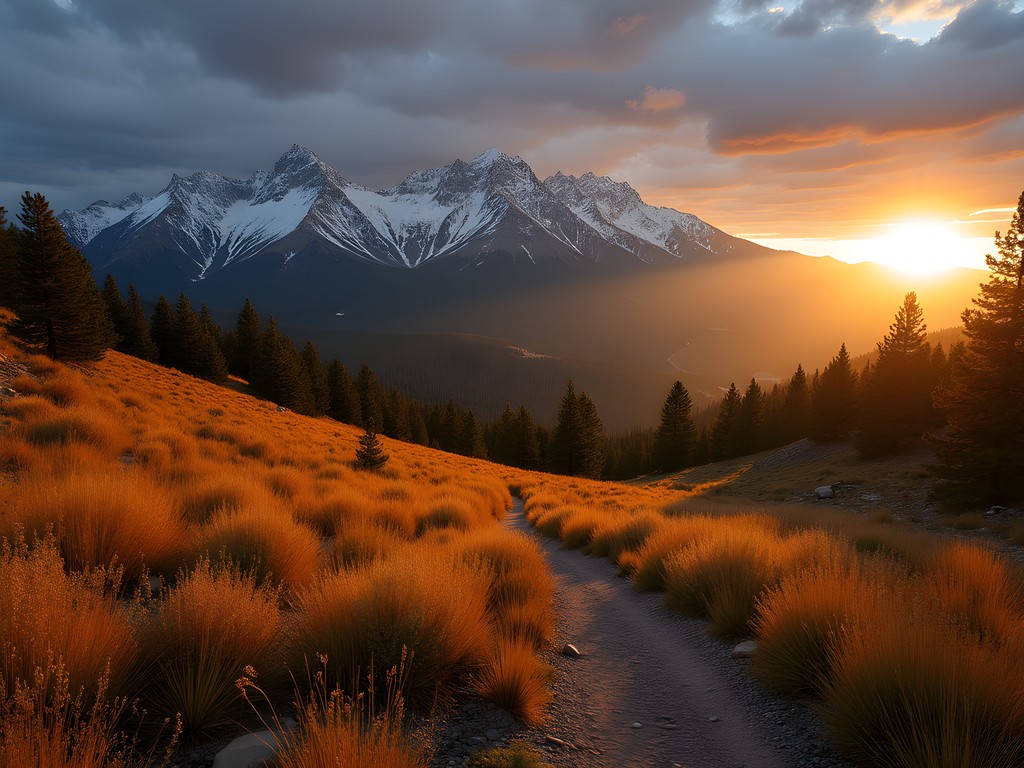
💡 Pro Tips
- Arrive at golden hour locations at least 30 minutes early to scout compositions and set up equipment
- Use the PhotoPills app to track exact sun positioning for planning shots in advance
- Bring a headlamp with a red light mode for navigating back after sunset without ruining your night vision
Urban Exploration: Downtown Flagstaff Through The Lens
Downtown Flagstaff presents a fascinating juxtaposition of historic Route 66 charm and modern mountain town aesthetics - perfect for street and architectural photography. The key is to explore the alleys between buildings, where the real character reveals itself. My investigative instincts always lead me to these overlooked spaces.
The historic train station and surrounding area offer rich visual storytelling opportunities. I prefer shooting this area in late afternoon when the warm light accentuates the red brick buildings, creating a nostalgic atmosphere. For night photography along Route 66, I've found that my remote shutter release eliminates camera shake during those crucial long exposures of neon signs.
One particularly rewarding discovery was Heritage Square, which transforms throughout the day. Morning brings soft, diffused light perfect for architectural details, while evenings offer vibrant social scenes. When photographing people enjoying the space, I've found my variable ND filter invaluable for maintaining appropriate exposure while achieving that dreamy background bokeh effect that isolates subjects against the bustling environment.
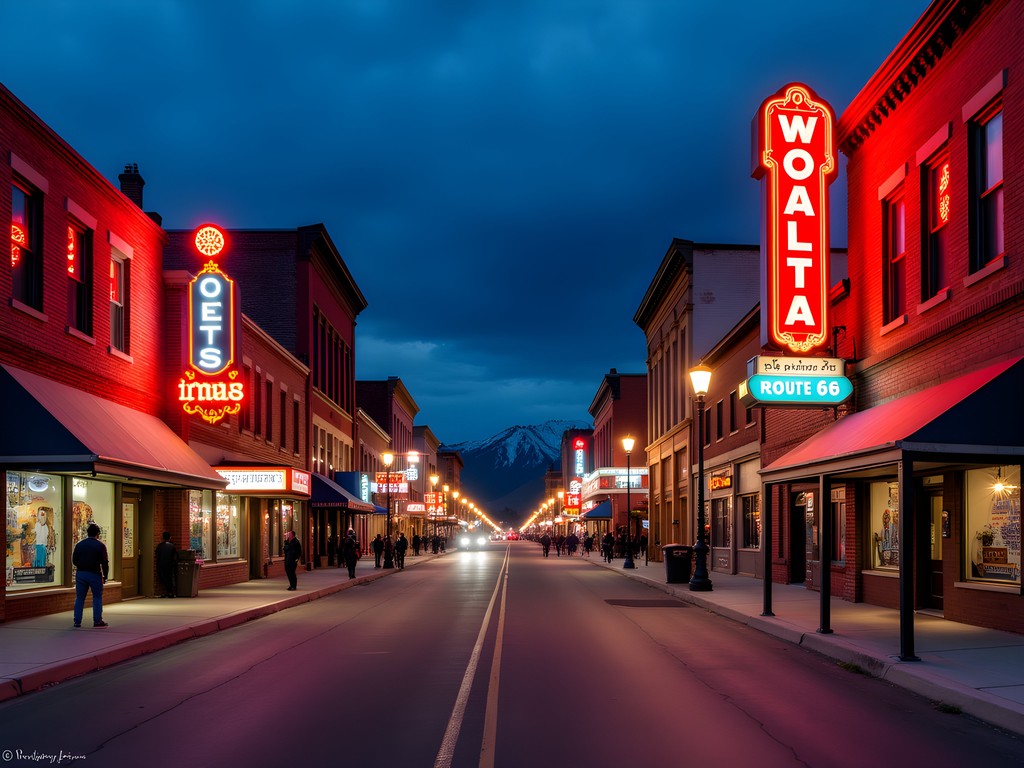
💡 Pro Tips
- Look for reflections in downtown storefront windows that create unique double compositions
- Visit on Sunday mornings when streets are quieter for cleaner architectural shots
- Use leading lines from railroad tracks and historic Route 66 to create compelling compositions
Forest Light: Navigating Flagstaff's Woodland Photography
The Coconino National Forest surrounding Flagstaff offers some of the most captivating forest photography in the Southwest. Unlike the expected desert scenes of Arizona, here you'll find the largest contiguous ponderosa pine forest in the world. As someone who's tracked subjects through various terrains, I can tell you these woods offer endless compositional possibilities.
Locust Hill Trail provides excellent access to aspen groves that turn brilliant gold in fall. The contrast between white trunks and yellow leaves creates striking vertical compositions. When shooting in these dense forests, I've found my light meter invaluable for getting precise exposures in the challenging dappled light.
The Inner Basin Trail requires more effort but rewards photographers with spectacular mountain meadow vistas framed by aspen stands. During my October visit, the golden aspens against deep blue skies created a color palette that demanded panoramic compositions. For these expansive shots, I always set up on my L-bracket which allows quick transitions between landscape and portrait orientations without losing composition.
For those seeking more intimate forest scenes, the Kachina Trail offers beautiful opportunities for macro and detail work. The forest floor comes alive with fungi, wildflowers, and intricate bark patterns. I've captured some of my most compelling close-ups along this trail using my macro lens filter - a budget-friendly alternative to a dedicated macro lens that I never travel without.

💡 Pro Tips
- Visit forests on slightly overcast days for softer light and better color saturation in woodland scenes
- Use a polarizing filter to reduce glare on wet leaves and deepen the rich colors of fall foliage
- Look for natural frames within the forest - branches and trunks that create windows to distant scenes
Night Sky Photography: Flagstaff's Dark Sky Advantage
As the world's first International Dark Sky City, Flagstaff offers astronomical photography opportunities that would make any night shooter envious. The city's strict lighting ordinances create conditions perfect for capturing the Milky Way and star trails. My background in surveillance has taught me to see clearly in low light conditions, but even I was impressed by the celestial clarity here.
Buffalo Park, mentioned earlier, transforms into an excellent night photography location after dark. Its proximity to town makes it accessible, yet the eastern view remains relatively free from light pollution. For serious astrophotography, however, I recommend venturing to Sunset Crater Volcano National Monument, about 30 minutes from downtown. The dark lava fields create dramatic foregrounds against the star-filled sky.
For successful night photography in Flagstaff's often chilly evenings, proper gear is essential. My rechargeable hand warmers have saved countless long-exposure sessions when temperatures drop after sunset. Not only do they keep my hands functional for camera adjustments, but I also use them to prevent battery drain in cold conditions.
When shooting the night sky, I've found my intervalometer indispensable for precise timing of exposures and creating star trail compositions. The ability to program multiple long exposures without touching the camera eliminates vibration and allows me to create composite images with stunning clarity.
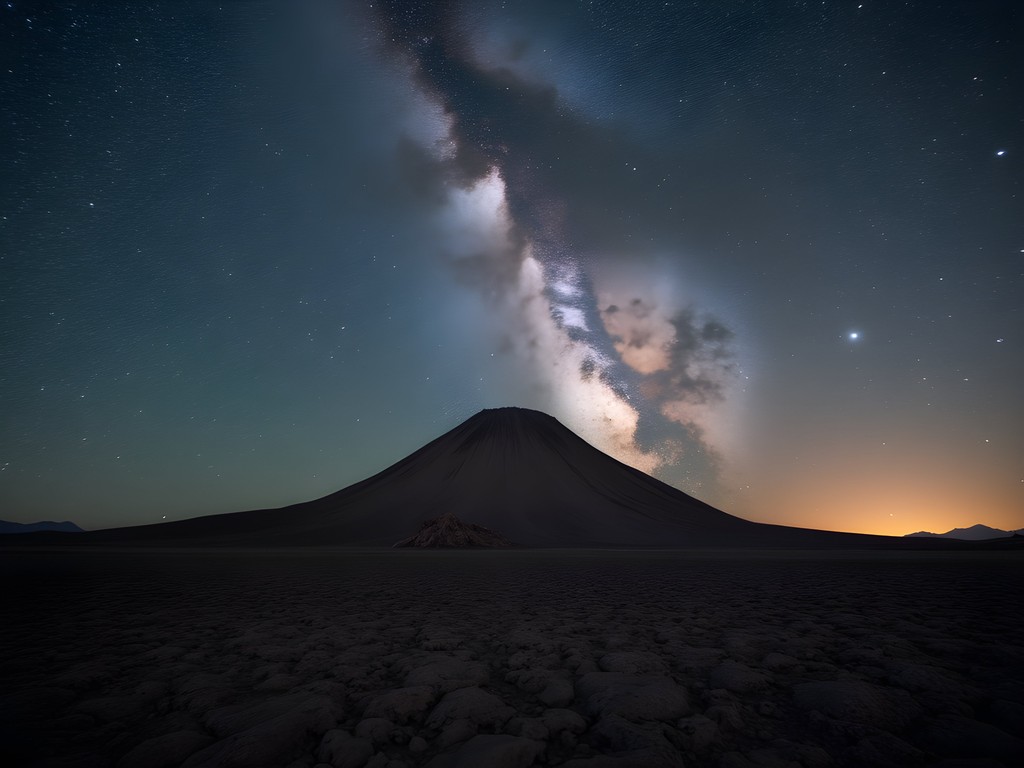
💡 Pro Tips
- Check the lunar calendar and plan your night photography during the new moon phase for maximum star visibility
- Use the 500 rule (500 divided by your lens focal length) to determine maximum exposure time before stars start to trail
- Bring extra batteries - cold nighttime temperatures drain camera batteries much faster than normal
Final Thoughts
Flagstaff reveals itself to the patient photographer much like a subject under investigation - gradually and with increasing depth. Its unique position as a mountain town in a state known for deserts creates visual opportunities that surprise even seasoned photographers. The combination of alpine light, historic urban elements, expansive forests, and pristine dark skies makes it a destination worthy of multiple visits across different seasons.
As with any photographic expedition, preparation is key. Research locations in advance, but leave room in your itinerary for those unexpected discoveries that often yield the most compelling images. Pack layers for the significant temperature swings common at this elevation, especially in fall when days can be comfortably warm while nights dip below freezing.
I'll be returning to Flagstaff in winter to capture a completely different visual story - one of snow-covered peaks and the warm glow of a mountain town in winter. The investigator in me knows there are still many visual secrets waiting to be uncovered in this high-elevation oasis. Until then, I'll be reviewing my images and planning my next angle of approach to this surprisingly photogenic Arizona town.
✨ Key Takeaways
- Flagstaff's diverse environments offer exceptional photography opportunities from urban to wilderness settings
- The city's status as a Dark Sky City makes it ideal for astrophotography
- Fall brings dramatic color contrasts with golden aspens against blue mountain skies
- Early morning and late afternoon light create the most dramatic conditions for landscape photography
📋 Practical Information
Best Time to Visit
September-October for fall colors; June-August for summer greenery
Budget Estimate
$150-250/day including mid-range accommodations, meals and transportation
Recommended Duration
3-4 days minimum to explore diverse photography locations
Difficulty Level
Moderate - Some Locations Require Hiking At 7,000+ Feet Elevation

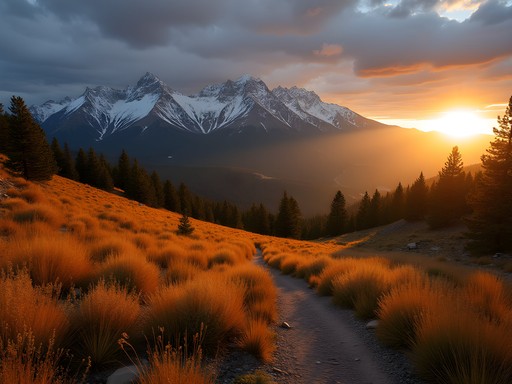

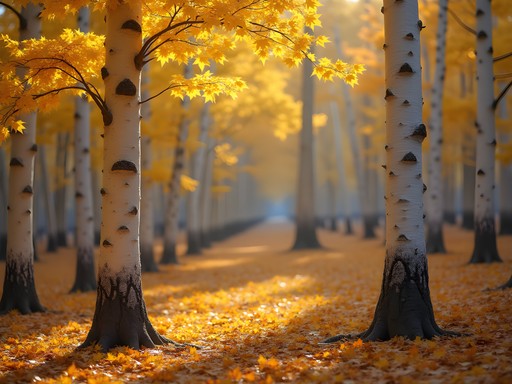
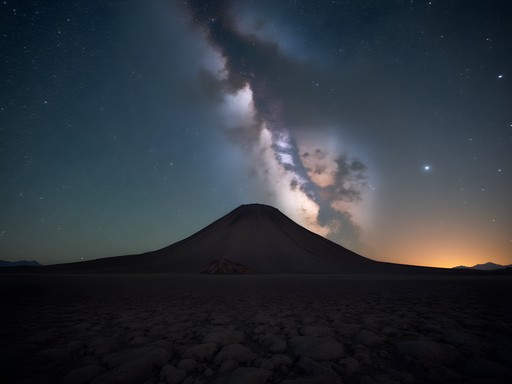


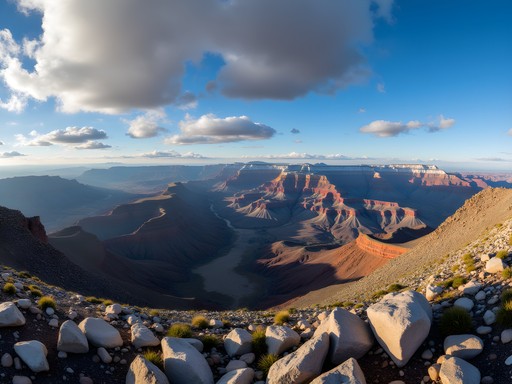
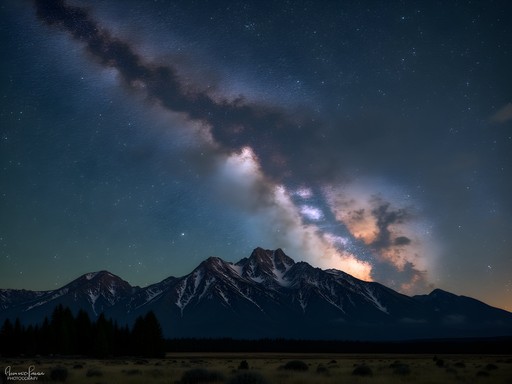
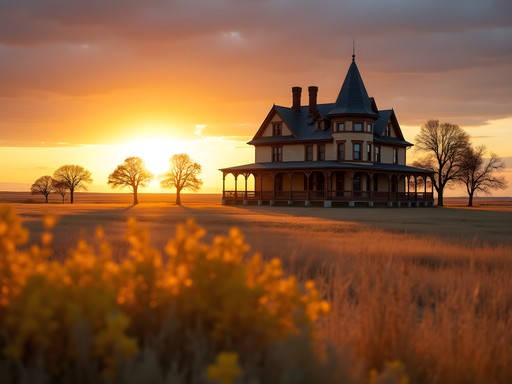
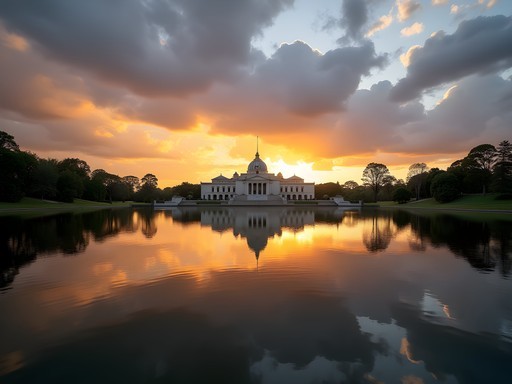
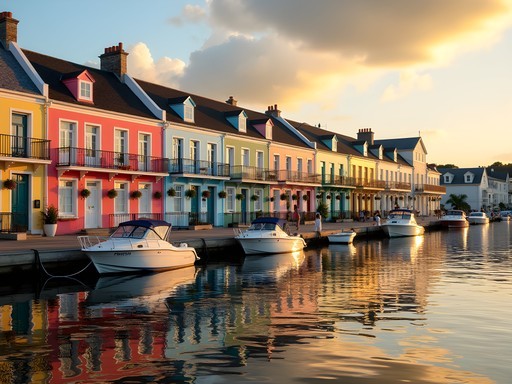
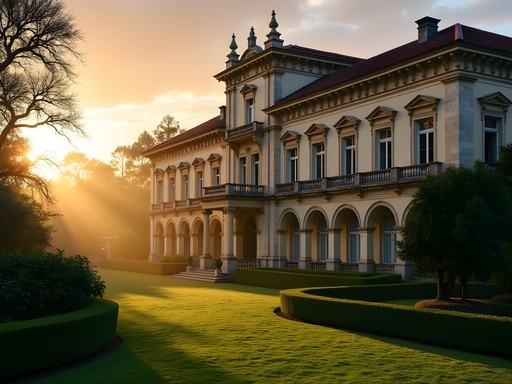
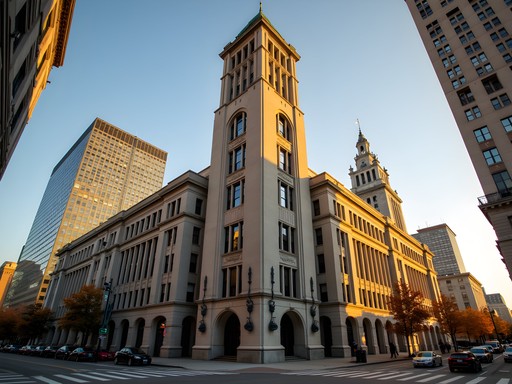
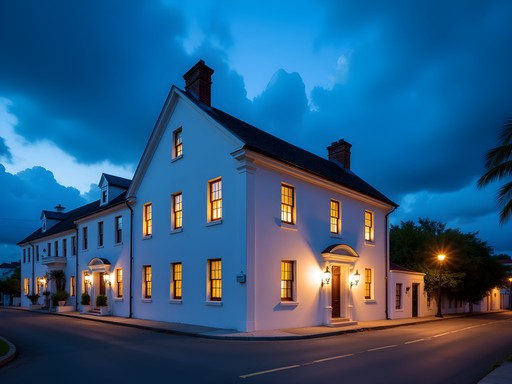
Comments
Amit Sullivan
Douglas, your post brought back wonderful memories of my time photographing Flagstaff last autumn! The way you described the light filtering through the aspen groves in the Kachina Wilderness took me right back there. I spent three days just exploring those trails with my camera. One location I'd add to your list is Lockett Meadow during early October - the golden aspens against the volcanic backdrop create a contrast that's almost otherworldly. I set up before dawn and watched the first light illuminate the meadow while a family of elk grazed in the distance. Pure magic! Your advice about patience in forest photography resonates deeply. Those moments of stillness when the perfect shaft of light breaks through the canopy are worth every minute of waiting. Flagstaff taught me to slow down and let the landscape reveal itself, much like your surveillance metaphor suggests.
Douglas Murray
Amit, you've captured the essence of what makes Flagstaff special! Lockett Meadow is indeed magical - I should have emphasized it more. Your patience clearly paid off with that elk sighting. The Inner Basin Trail from there is also spectacular in autumn.
journeypro
Wow, adding Lockett Meadow to my list immediately! How difficult is the drive up there? I've heard it can be a bit rough.
Amit Sullivan
The drive is narrow and winding but manageable in most vehicles if it's dry. Go early - the parking area fills quickly, especially during fall colors! Worth every white-knuckle moment on those switchbacks.
journeypro
Great post! I'm heading to Flagstaff next month and wondering what lens setup you'd recommend for both the forest shots and night sky photography? I've got a Sony mirrorless system.
Douglas Murray
For Sony mirrorless, I'd suggest a fast wide-angle prime like the 20mm f/1.8 G for night sky work - Flagstaff's dark sky status is perfect for it. For forests, the 24-70mm f/2.8 gives you versatility for both intimate woodland scenes and wider landscapes. Don't forget a sturdy tripod for those long exposures!
beachfan
I used my Sony 20mm f/1.8 G in Flagstaff last month and it was perfect for astrophotography. The stars were incredible!
beachfan
Just got back from Flagstaff last week! Your golden hour locations are spot on - that view from Buffalo Park is incredible. We caught a sunset there that lit up the San Francisco Peaks like they were on fire. Downtown at night was also amazing for street photography with all those historic buildings. Did you find any good spots for monsoon season storm photography? Planning to go back next summer for that.
Douglas Murray
Thanks beachfan! For monsoon season, try A1 Mountain Road for those dramatic cloud formations over the peaks. The overlooks along Lake Mary Road are also fantastic for capturing lightning strikes with the proper safety precautions.
beachfan
Perfect! Adding those to my list. Can't wait to go back!
dreamguy
Just got back from Flagstaff and followed your golden hour recommendations - WOW! The sunset from Thorpe Park was exactly as you described. That soft light hitting the volcanic field is something else. Got some of my best landscape shots ever. Thanks for the detailed guide!
Douglas Murray
So glad to hear that! Would love to see some of your shots if you want to share them.
dreamguy
Just posted some on my IG - I'll tag you! The forest light shots were trickier than I expected though - any tips on camera settings for those deep woods scenes?
Douglas Murray
For forest shots, I usually shoot with a slightly higher ISO (400-800) and open up the aperture. The dappled light can trick your meter, so spot metering on mid-tones helps. And don't forget a polarizing filter to manage those specular highlights on leaves!
redmood
Love that you included both natural and urban photography spots. Most guides only focus on one!
Casey Andersson
Douglas, this guide is spot on! I spent a luxurious photography weekend in Flagstaff last year and discovered that staying at the Little America Hotel gave me perfect access to both the urban scenes and forest trails. One tip I'd add for those attempting night photography there - the elevation (7,000ft) makes the air quite chilly even in summer, so bring layers! The Dark Sky Coalition has really protected Flagstaff's night views, and I got some of my best Milky Way shots ever from Buffalo Park. For forest photography, I found the dappled light in the Inner Basin Trail to be absolutely magical around 9-10am when the sun filters through the aspens. Flagstaff truly is a photographer's paradise in every season!
globefan
Any recommendations for photographing the historic downtown without crowds of people?
Casey Andersson
Early Sunday mornings are your best bet! I was there around 6:30am last summer and had the streets practically to myself. The warm morning light on those brick buildings is gorgeous.
Lillian Diaz
I spent a week in Flagstaff last year and can confirm everything Douglas said about the golden hour spots! Buffalo Park was magical at sunrise - the way the light hits the San Francisco Peaks is something else. For anyone heading there, I'd add Lockett Meadow during aspen season (late September/early October). The golden leaves against the mountain backdrop are a photographer's dream. Just get there EARLY as parking fills up fast. I hiked up with my mirrorless camera and the lightweight setup made the uphill trek much more manageable.
smartchamp
Great post! What time of year is best for the night sky photography there?
Douglas Murray
Winter offers the darkest skies and clearest air, but summer has the Milky Way core visible. I personally prefer late September when temperatures are moderate and you can still catch the galactic center.
smartchamp
Thanks Douglas! Planning a trip for this fall then!
wavetime
Those night sky shots are incredible! Flagstaff just moved up my photography bucket list!
Venture X
Premium card with 2X miles, $300 travel credit, Priority Pass